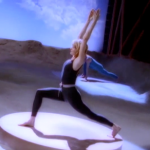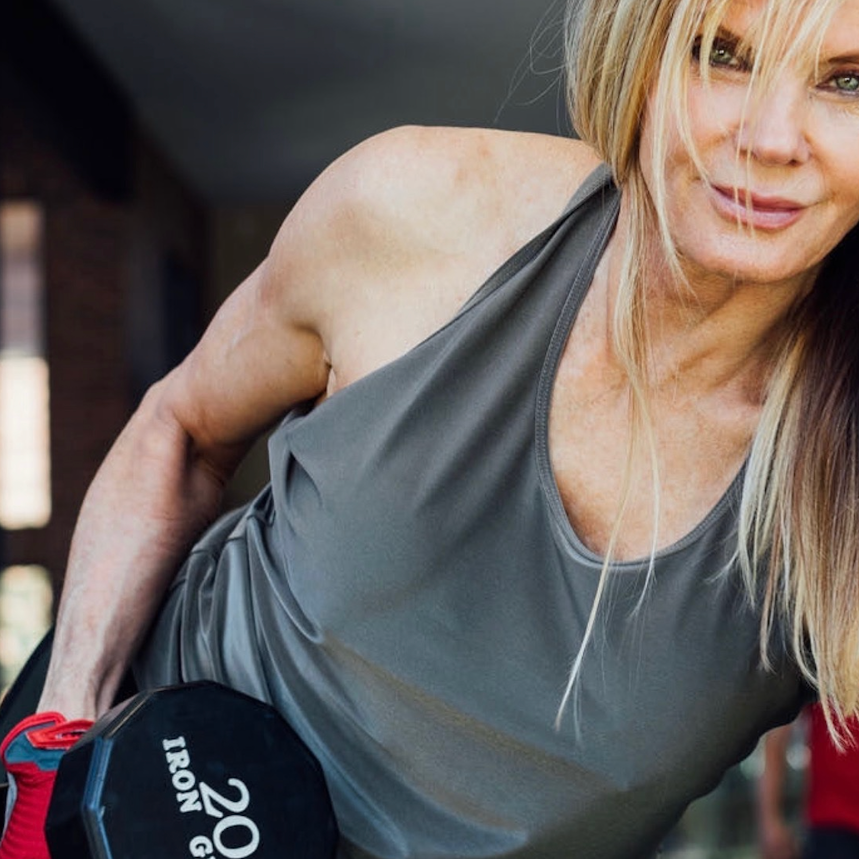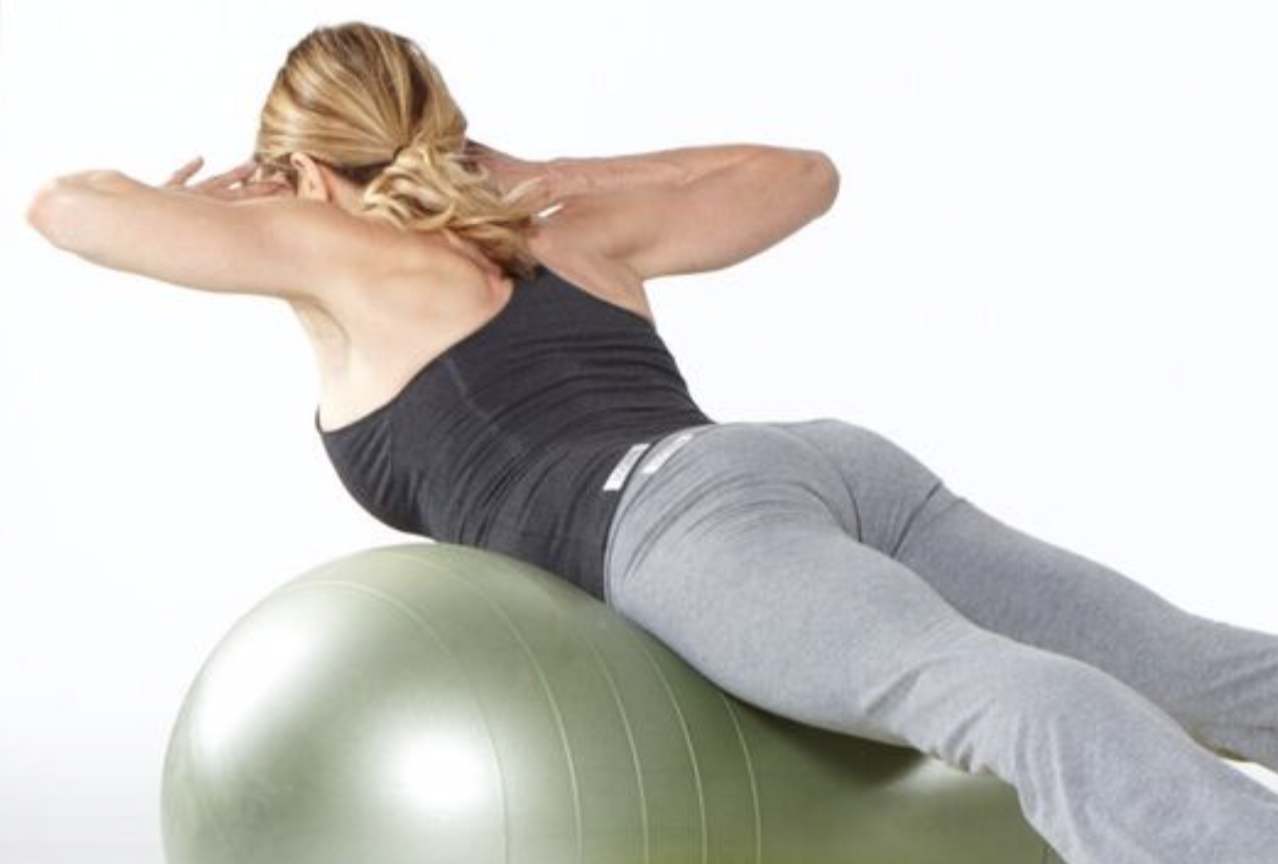Episode 22 | Baron Baptiste | The True Power of Yoga

LISTEN…CLICK PLAY!
Why you should listen
In the ’70s, I was a student at the University of Hawaii. It was a low point in my life…a time when I experienced a lot of tragedy. We all have times when we feel directionless, afraid, alone, anxious…And we ask ourselves, “What am I doing with my life?” That’s where I was at that time…which is what led me to begin practicing yoga.
Immediately, I understood its physical component…the bending, the stretching, the twisting, and how it helped release tension. Yes, I definitely felt looser. But there was also a profound, and yet very subtle, mental shift that would happen whenever I would finish the class. A sense of clarity and calmness would fill me. I felt empowered! But, it wasn’t a permanent fix. It was fleeting…. And as the day went on, I’d get caught in my “stuff” again.
Over the years, I’ve noticed that as life was going well, when relationships and business were blossoming, I would drift away from my yoga practice. And then BOOM! Something dramatic or out-of-the-blue would hit me. And what I craved more than anything in those moments was getting back into a yoga class, because I felt comfort on the mat.
But, it took me many years to understand the true power of yoga.
Today’s podcast guest, Baron Baptiste, is not only my friend, but also one of the most respected and renowned yogis in the world. For more than 25 years, Baron has devoted his life to creating and sharing transformational yoga practices and programs. He shares the Baptiste Yoga methodology through workshops and books. His newest publication, Perfectly Imperfect, is a MUST-READ…it’s a New York Times best-seller that I leave on my bedside. I love to pick it up before bed because it has so many nuggets of inspiration.
In this 30-minute episode, you’ll discover…
- What can you do if you’re not receiving what you desire in life?
- Is it okay to come to yoga to get “fixed?”
- Why is it important to practice yoga regularly?
FAMILIAR WITH PODCASTS? LISTEN ON iTUNES!
Follow Along With The Transcript
Today’s guest, Baron Baptiste, is not only my friend, but also he’s one of the most respected and renowned yogis in the world. For more than 25 years, Baron has devoted his life to creating and sharing transformational yoga practices and programs. He shares the Baptiste Yoga methodology through workshops, books. His newest one, Perfectly Imperfect, is a MUST-READ New York Times best seller and I leave it on my bedside table.
Kathy Smith: Hi, Baron. Welcome to the show.
Baron Baptiste:Kathy, it’s really great to be here with you. You’re such an inspiration, so I’m thankful to be here.
Kathy Smith: Thank you. Ok, quick story. I’m going to make this quick, but I want to just tell you how I got introduced to yoga. I started practicing in the 70s, and I was student at the University of Hawaii. It was really a low point in my life, because I had experienced a lot of tragedy right around then and I was definitely at a point where I was afraid, alone, anxious and I found myself asking, “What am I doing with my life?”
So, it’s kind of interesting that 40 years ago during this time when I started practicing, I immediately understood that physical connection. I mean, you’re bending, you’re stretching, you’re twisting and I felt all this tension leaving my body and I felt looser. I also found the subtle shift. It was very subtle and it would happen when I would go to class and I would get off that mat and I would have this sense of clarity and I’d feel more calm and I’d feel more empowered.
But interestingly, it wouldn’t last. I would get a bit of it, but it wasn’t a permanent fix. It was kind of fleeting, and as the day went on, all my stuff would start to gather up again and I find myself anxious and all those other things I was talking about.
So, it’s interesting also that as I practiced over the years, when things were going well, when my business was booming, when relationships were blossoming, I would kind of drift away from my practice. Then, boom! I would get hit with something and out of the blue, I would find myself crashing down again. That’s when I craved yoga again and going back to that mat and the comfort that I would feel on that mat.
So, it took me many, many, many, many years to start to understand really the true power of yoga. And, Baron, you were extremely helpful to me and so many other people through this process. So, I wanted to start out by just asking you, do you find my experience unique or have you noticed that a lot of people go to yoga to kind of get fixed?
Baron Baptiste: Yeah, it’s really great. I very much appreciate your story, and it’s a very, kind of common theme that I hear. And I’ve actually had the same experience. I always like to say that in life we are either expanding or contracting. I think we can be doing healthy practices and have an amazing yoga practice and meditation practice and, like you say, relationships are blossoming, life’s expanding and, then, we stop practicing those things that are life affirming and keep things expanding. We stop yoga practice and we begin to slowly contract. And we kind of live off of the interest of our practice for a while, live off the fat so to speak. Then, we do slowly start to contract, and when we find ourselves in a contraction, like you and I, Kathy, and the listeners here are the kind of people that really are about expanding in life.
So, I think our natural response when we find ourselves contracting is to seek out the practices that open us up again and open up our vitality and our energy. So, we come back to yoga. Then, things start expanding and blossoming again, and we stop practicing and we start contracting.
So, I just want to say I think this is kind of a dance. What I’ve learned in my own experience and practice, but also just in working with many, many people is that the real benefit of the practice is having it be a way of life. My parents always used to say, “Yoga is a consciousness and it’s a way of being in life, a way of relating to life, a way of living,” and a daily practice keeps life expanding. Through all the highs and lows, the practice is kind of a true north, we could say. Something like that.
Kathy Smith: A couple of things you mentioned there, which one your parents. You were raised by yoga parents and it’s remarkable. When I first heard about your story, the fact that in the 50s, here you are hanging out with these concepts that in those days were considered rebellious. They were considered so foreign, so unique, so outside the box, and I would imagine, for you, it was just a way of life around your household.
Then, you became a teacher and you started teaching these practices, and I would imagine that it was a little difficult early on because the way that we see yoga now–and people that have dropped in, let’s say, in the last 10 in that time period probably don’t realize that there was a time in the United States where it wasn’t really acceptable to just go to a yoga practice. Not so much acceptable. It was acceptable, but it was just foreign to everybody. There were a lot of cynics out there. Did you notice that when you first started teaching?
Baron Baptiste: Yeah, certainly, when I first started teaching in the late 80s in Los Angeles. But growing up in San Francisco, my parents opened the first yoga center in San Francisco and the early 1950s. To your point, in those days, yoga was a kind of strange phenomena and people saw it as really kind of weird, strange, different. Then, you had people who are more open and curious, and this is in San Francisco too where people tend to be more open and liberal to kind of unique, different things.
Even in San Francisco, it was really challenging growing up. I was often teased and kids in grade school, elementary school, they would call me Hare Krishna. My parents would send me to school with a lunch, and I was the only kid who had a banana with brown spots on it. All the other kids had these nice, yellow greenish bananas. I was the only kid who had brown bread. All the other kids had nice, white Wonder bread. That was a source of torment for me. I was really teased unendingly. Then, socially, people in the community knew my parents were yoga teachers and, so, it was just from kids that I went to school with. I was considered different and weird because my parents were yoga people, and that was kind of a weird thing.
Starting teaching in the 80s, back then, yoga was considered kind of contraindicated. Even by the fitness industry standards, it was considered dangerous and people didn’t understand it. It was just so foreign and new.
Then, with time, I’ve always had a commitment to making yoga accessible to all, to everyone from every walk of life, any age, any stage of life, any weight, any fitness condition to make the benefits of yoga, which are very powerful and profound life-altering kind of benefits – but available to everyone so that whether you have no yoga practice or you’ve had some yoga practice to really get the power, and like to your point earlier beyond just the physical practice.
So, the physical yoga practice asana we call the physical poses. It’s very powerful but, then, when you add the mind and mind/body connection and the honoring of one’s spirit and awareness and the cultivation of one’s awareness and mindfulness, it becomes a very potent, powerful practice which sets someone on a whole new path in life.
Kathy Smith: From your early teachings, then you started so many other directions, but one of the most powerful that I’ve heard about are your workshops. So, you’re a teacher training in your workshops.
What I’ve found interesting about your style and your approach is that people–and when I say people, I have friends, people that have worked with me that have gone to your teacher trainings and they come out changed in so many ways. So, to your point, yeah, they learned the asanas, they learned the Sanskrit, they learned what they’re called, they learn how to do it, they learn proper form. That’s the foundation, but that’s just the bottom layer.
Then, there’s all these other layers that you bring to the equation. And I noticed–we think about yoga as being calm, cool, collect, loving, nurturing, which you are. You are all those things. Then, I’ve also heard about all this other side which is that side that you help people through their stuff, so to say, by helping–and I’m not saying pushing but kind of allowing the space. I don’t even know how you would phrase it but you give them a nudge to think a little bigger than what you’re doing right now. So, talk to me a little bit about your philosophy.
Baron Baptiste: It’s really great what you’re bringing up around–well, I’m hearing environment. So, what I attempt to do and have been able to do pretty successfully is create empowering environments for people. So, in a workshop setting or a training, an immersion, people come into an environment like that and create a kind of sanctuary for body and soul. They put their usual, everyday life on a shelf for a weekend or for a week and they focus on body, mind, spirit.
In the practices of yoga – asana, the physical practice, the meditation, the working with the mind and expanding one’s self-awareness and awareness of life and inquiry.
Inquiry is a kind of questioning process where you are going through a series of questions that are expansive and, to your point, like bigger. It allows for doing some bigger thinking about one’s life, what’s important to you, what inspires you. Often, people walk into our programs feeling really stuck in their life or in their energy or resigned or their feeling disempowered. Physically, energetically, they’ve lost their sense of vitality, they’ve lost their light, they’ve lost their sense of purpose sometimes.
It’s really amazing to put the focus, the time into, again, putting yourself in an environment and spending some time on really getting present, to your experience in getting present to what’s important and, also, doing some inquiry where you examine where you’re being stopped in yourself or you notice you’ve gone through a series of situations and experience in your life and your left feeling resigned or cynical or exhausted and you need to reboot, you need to press the reset button.
Yoga practice with meditation and the whole eight limbs of yoga, we call the eight different approaches to yoga practice, really allow us to reboot, to reset body, mind and reconnect to our spirit, what I also like to call a true north.
Kathy Smith: You mentioned that earlier. I want to get back to that. What does that mean, true north? True north alignment.
Baron Baptiste: True north alignment in body physically, we work with yoga asana, we work with yoga tools to re-align the body and optimize our posture, optimize our physical fitness, to detox, to sweat, to move, to breathe to move old energy out. In such a way, you start coming back to your optimal energy or optimal physicality, optimal body. We could say, “Ok, that’s physically I’m coming into a true north.” But we’re more than just a body.
So, now, it’s also aligning my mind to my body and bringing the two aspects together and, then, my body, mind and heart–like, what’s in my heart, like what’s important to me, what’s of interest to me, what am I passionate about in my life, what’s my life for, what’s my bigger purpose in life that I can, then, bring my body and my mind, bring all my power and capacity in line with my heart, like what’s in my heart of hearts and to use all of my capacity to fulfill on my life, to live an amazing life and extraordinary, the life that I want to live, the life that I love. We call that true north alignment because it gives us a place to stand in ourselves. It gives us a place to stand in our life to stand in our power.
Kathy Smith: Well, I notice that in your workshops and in your teachings and in your books that you like these three-word phrases that are sort of the cornerstone of your philosophy – sometimes three, sometimes four-word phrases. Let me give you a few of these phrases that I’ve noticed you use, and tell me what they mean and how the average listener can relate to them. This one, “act as if”. What does that mean?
Baron Baptiste: Act as if is what you want to have happen in your life, action is the way. Good intention without action is a delusion let’s say. When you act as if what you’re going for, what you want to have happen. When you act as though it’s going to happen, it’s amazing how things start showing up to support that thing happening. Maybe you’ve had that experience. There’s some great philosopher who said, “Once one truly commits oneself, then providence moves too,” and all kinds of unseen forces move to support you in fulfilling your commitment. I’m paraphrasing the quote, but it’s something like that. When you act as if, you’re really standing and acting from this thing is going to happen. It’s amazing how things happen when you act as if. They manifest.
Kathy Smith: Yeah. It’s so true. I see that repeatedly in my life and when things aren’t happening, almost the reverse is true. When things aren’t happening, I step back and start to think about, ok, what do I want to happen? How am I acting right now? It’s pretty interesting how–for example, you might say, “I want to be in a relationship. I want love in my life. I want to be in a relationship.”
Then, you watch how you’re acting and you look at it and you go, “Oh, I’m not really acting as if I want a new relationship. I’m not doing this, I’m not doing that. I’m being closed down,” whatever it might be. So, it’s interesting to notice the opposite when things aren’t happening in your life and perhaps how you’re acting.
Baron Baptiste: It’s really great. I love what you said, because in my experience, a great to place to look is in the results you’re getting in your life. So, if you’re not getting the results you want like you said as an example, a relationship. If you’re not getting the results you want, it’s a good place to start because, then, you may want to look at, “I’m saying I want this thing, but am I really acting in ways that are consistent with that thing happening?”
Often, we’ll find there’s a gap there. I usually will find if I’m not getting the results I want, but I say I want those results, there’s some gap there. And maybe I’m deluding myself even. I say I want this, but really, I’m not acting as though or acting as if that’s what I want – not really, when I look more closely.
Kathy Smith: Yeah, I notice that’s also true with a lot of people with weight loss. People say, “I want to lose weight. I need to lose weight. It’s important that I lose weight.” Then, you kind of watch them. I’m not judging them or anything, but then, you watch them and you go, “Really? You’re saying you want to lose weight, but it’s midnight right now and you’re having a hamburger. I don’t know. You’re not acting as if.” So, that’s kind of interesting.
What I find fascinating, with yoga, I just have to say, the more I practice and the more that I let the practice sink in–for instance, in the last chapter in your book, you have a quote from Thich Nhat Hanh and it says, “We will be more successful in our endeavors if we can let go of the habit of running all the time and take little pauses to relax and reset ourselves, and we’ll also have a lot more joy.”
In that chapter, you talk about Shavasana. Shavasana, for our listeners who don’t know, that’s known as corpse pose or dead man’s pose. Basically, a simple way of explaining it, you’re lying on your back, arms out, legs out. You’re doing nothing except lying on your back. It should be a very, very easy pose, because it’s a time to relax. Yet, a lot of people have problems with it because there’s nothing really happening.
So, they can go to their thoughts, they can go to thinking about what they have to do for the rest of the day and, yet, the more that I learned about to literally–I mean, this is the hardest pose for me. Of course, I’m a doer. I’m a cardio, I’m a strength training person. I like to go, go, go. So, in the class, we’d comment, “Ok. Let’s go.”
The more I sat or was lying in that pose and just let all this sink into my body, the more that I started to let go of certain demands I put on myself. My power would come out of this pose. So, tell us a little bit–I know you’re big in yoga. You close out your book with this particular pose. Tell us why you think recovery and rejuvenation and rebooting is so important.
Baron Baptiste: It’s really a great question. Often, it’s what separates yoga apart from so many other disciplines. What I notice is that balance of action and non-action. In the west, we’re so wired up for action and doing, doing. It’s true. Action is the way to results. The other side of action, which is non-action and it’s that balance of the yin and the yang, the giving and receiving, the effort and, then, the restoration.
So, Shavasana, we go through, let’s say in Baptiste Power Yoga, we go through a vigorous, what we call vinyasa, a flowing series of poses. It’s vigorous. You’re sweating, you’re moving, you’re breathing, lots of doing, lots of action.
Then, there’s this balance at the end where you come into Shavasana. You’re on your back, you close your eyes and you just let go. You let go of all the intention. What you’re going for is to let go of everything. Hold on to nothing. The power of a total kind of surrender and not surrender as like giving up, but surrender as an entry into a whole new beginning and allowing. I think the word that really comes powerfully to mind with Shavasana, that rest is allowing where we just allow all the right things to take place and let go and let God, let go and let good, let go and feel and through feeling, there’s great healing.
Without feeling, just doing is great learning of itself. It’s kind of a deeper kind of connection we make, a kind of intimacy that comes through that deep, deep rest, that deep, deep relaxation. Surrender is a kind of intimacy, that into me I see, and differently than when I’m doing and acting. I may see into myself and see into my environment but very different kind of intimacy. Into me I see when I stop and I slam on the mental breaks and I let go of the mental rope and I drop into a deep, deep relaxation. There’s a deep kind of body intelligence and body wisdom and the systems of the mind, body and emotions that go to work on our behalf and heal and integrate and restore, rejuvenate all on our behalf. So, a really powerful other side of the practice. I appreciate you bringing it up.
Kathy Smith: Tell me about the book. Tell me about Perfectly Imperfect, because it is your newest, latest book. It’s done so well and there’s so many aspects of it. Where did you come up, first of all, with the title, Perfectly Imperfect?
Baron Baptiste: Perfectly Imperfect was written right out of the classroom, meaning I would teach a class or a workshop or training, and I would go straight to my journal or to my computer and start writing right out of my experience in the classroom and the experience, the students’ experience, people practicing yoga and meditation and inquiry on their mats. I would kind of write what I was learning and seeing and observing.
I started to notice a theme as I was writing this book. I started to notice the theme that most human beings are struggling with their imperfections, their flaws, their limitations where they’re feeling disempowered or where they can’t do things at the level they want to do things or they’re discontentment with their body image and appearance. All the things it seems we could say are imperfect or classified as imperfect, people just struggle with that.
Yet, the beauty of yoga practice, at the heart of it, is this what we call santosha. It’s total acceptance where the imperfections have their own kind of perfection. I was writing on this and I started seeing this theme in my writing and all of a sudden, I’m like, “Wow, there’s really a perfection in all the imperfections of people sharing their life and their story and their evolution and their growth and their development.” I started to see that, “Wow, there’s really a perfection in all the imperfections.”
Then, I started looking at my own life and seeing, well, all these imperfect experiences I’ve had – I’ve shown up imperfectly and I am imperfect in so many ways. Yet, there’s been a kind of perfection in the bigger picture of it on a bigger kind of learning from it all. I was like, “Wow, well, that’s actually like the title of a book, Perfectly Imperfect.” So, that’s how it kind of landed for me.
Kathy Smith: It’s really brilliant. What I find, even when you’re talking, my shoulders drop about an inch, and I just feel this little lightness of being going through my body. Because just the words of saying that our imperfections are perfect, that there’s no need to strive for anything else, that you’re whole, you’re complete, you’re perfect just the way you are. Even though it might sound, I don’t know, trite or something, the acceptance of that in yourself and, then, extend that to other people and other human beings, it just makes you feel lighter and happier and, honestly, as they say, less stress. I just grew another inch and my shoulders dropped, and I could feel in just that moment there, just the heart opening just a little bit, like, ‘Yeah, you’re not perfect. I’m not perfect. We’re all pretty good and we’re all pretty perfect.”
If we could all come to that place about ourselves – forget about other people – we start with ourselves. It’s amazing what it does to, obviously, so many parts of your life, but your health. People, between high blood pressure, heart disease, cancer, all the things that you start to build up because we feel like, “I have to be better, I have to achieve, I have to look different, I have to do more, I have to be more successful, I’m not good enough,” and all that stuff, when you finally go, “Oh, no. I am actually pretty good. I’m whole just the way I am.” When you say those words to yourself, it’s very powerful. So, it’s a great lesson.
Baron Baptiste: Yeah, it’s really great.
Kathy Smith: I just wanted to let everybody know about your Africa Yoga Project just to check it out at your website. Do you want to say a couple of words about that, because I know it’s a big part of the non-profit and the work you do down there?
Baron Baptiste: Yeah. Thank you for bringing up Africa Yoga Project. It’s really a big passion of mine. The Baptiste Institute has a Baptiste Foundation, and the Africa Yoga Project is something we started back in 2009. Paige Elenson and I founded Africa Yoga Project, which is centered in Kenya.
We have, now, about 10,000 students a week coming through our yoga programs there. The way it’s worked is I’ve trained the local youth and young men and women as leaders in their communities to teach yoga and, specifically, the Baptiste Yoga Methodology. So, I’ve done these leader trainings and teacher trainings for the local young people, but they’ve grown up and matured into these amazing leaders in their own communities. So, they provide yoga classes, they provide inquiry sessions, educational kind of inquiry for the people in their community around education.
Let me just say this. All of these classes are for free. They’re in the slums, they’re in orphanages, they’re in prisons, they’re really offered at no charge. So, you can always go to AfricaYogaProject.net or just Google Africa Yoga Project. It’s really an amazing project and impacting so many people in so many great ways. So, thank you for bringing that up.
Kathy Smith: Do you have any plans of going back in the near future?
Baron Baptiste: I do. I have my eye on going back sometime in the later part of 2017 and doing a level three training. The people there are so sweet, and the group of leaders, we now have about 200, what we call leader teachers there. They’ve been sending me Facebook messages and sweet YouTube videos inviting me to come back to Kenya and lead a level three, because I’ve gone there and I’ve done a level one training, I’ve done a level two teacher training. Now, level three is kind of next level, so yeah, I’ve got it on my radar for sure.
Kathy Smith: Ok. Well, thank you again for being such a visionary on and making such a difference on this planet to so many people, and thank you for the book, Perfectly Imperfect which everybody out there should grab a copy.
And I think the one thing that I forgot to mention at the beginning of the show is that Baron and I share one more thing common and that’s we both live in Park City, Utah. So, Baron, I might be seeing you at the local coffee shop. If not, I will be reading your little nuggets in your book. Thank you so much for being here today.
Baron Baptiste: I love bumping into you. I just want to say, Kathy, you really are such an inspiration and to so many people, beginning with me and including me. I just really so appreciate you being such a stand for people and humanity and people living their best lives. So, thank you.
Kathy Smith: Well, thank you. Bye-bye now.








